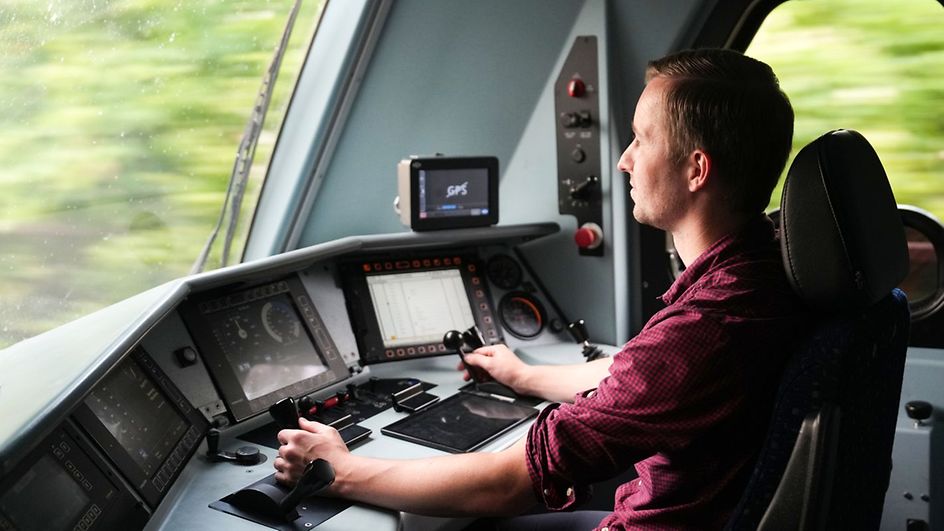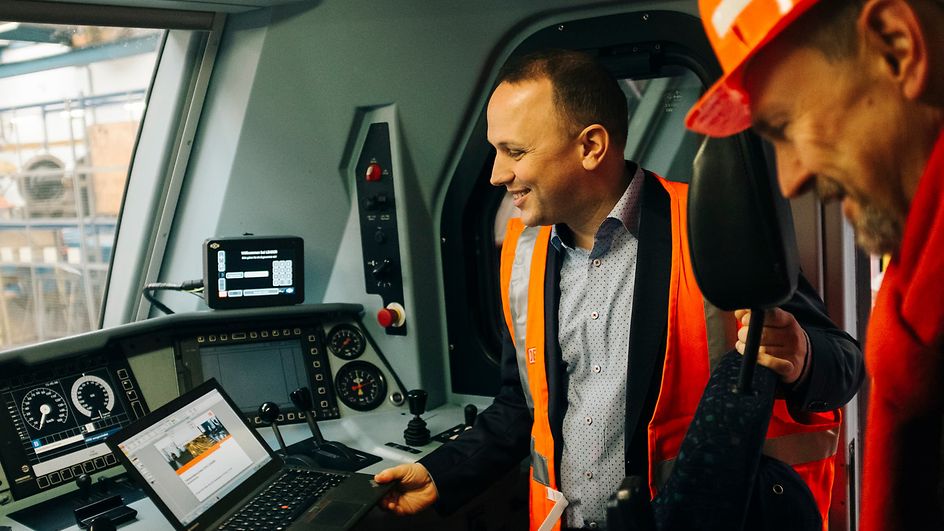Article: Strong long-haul driving at DB Cargo: More stability, speed and quality for our customers
In order to make rail freight transport even more efficient, DB Cargo is focussing on the strong long-haul driving model. At the heart of this approach is optimised deployment planning, in which train drivers consistently take over long sections of the route - and the number of personnel changes is reduced to a necessary minimum. This minimises the need for coordination, makes processes more robust and enables a faster response in day-to-day operations.
The model is already proving successful in combined transport. The planned expansion to the four sectors of DB Cargo AG's block train services (Automotive, Bulk & Liquids, Steel and FLS) and thus to other customers should help to keep transport operations as stable as possible despite roadworks and disruptions on the route network and ultimately strengthen DB Cargo's competitiveness in rail freight transport.
Voices from practice:
An experienced train driver gives us an insight into his new working day in an interview.He shares his experiences and talks about the challenges and joys of "strong long-haul driving".
DB Cargo: How long have you been a train driver and what has your career path been like so far?Thomas: I've been working on the lines for over 40 years and started out on the Deutsche Reichsbahn. After working in Weißenfels and Nuremberg, I now work in the "strong long-haul driving" deployment model in maritime combined transport.
DB Cargo: How has your day-to-day work changed with "strong long-haul driving"?Thomas: It's an exciting step for me. I'm travelling a lot and getting to know new routes. No two days are the same, and that's what makes it exciting.
DB Cargo: Were there any challenges at the beginning?Thomas: Oh yes, the start brought some changes. There was a lot to learn - new routes, new processes. But the team was incredibly supportive. We helped each other and grew together. That made the early days much easier.
DB Cargo: What convinced you personally to sign up for "Strong long-haul driving"?Thomas: The model offers fewer handovers and waiting times, which suits my passion as a train driver. It also allows me to see new routes and work more efficiently, as fewer staff are scheduled for the trains. The role as a strong long-haul driving driver is varied and offers direct lines of communication with management, which ensures quick and accurate feedback. This is a real step forward and shows that people are thinking of you.
DB Cargo: How do you feel about the support from your family?Thomas: My family understands my job and fully supports my lifestyle. But you have to like it. Working is very different. You're on the road more, travelling from hotel to hotel. It suits me because my children have left home and my wife is behind me.
DB Cargo: What do you see for the future of "strong long-haul driving"?Thomas: I am optimistic that this model will take us forward as a company. The new deployment model means that delays caused by roadworks or disruptions can be handled much better. As a result, we hardly ever have to switch off trains, but instead run them through.
The benefits of strong long-haul driving are felt not only by employees, but also by customers: Consistent support for trains, fewer waiting times, fewer staff changes - all of which lead to more reliable and efficient transport operations.
The experiences of train drivers show that strong long-haul driving not only brings operational advantages, but also creates attractive conditions for staff. This strengthens the company - and ultimately pays off in a better customer experience.


